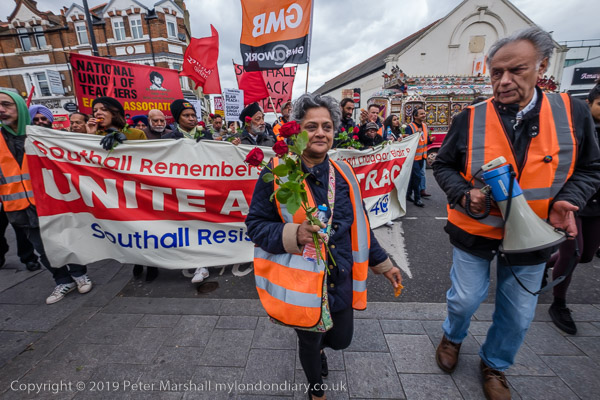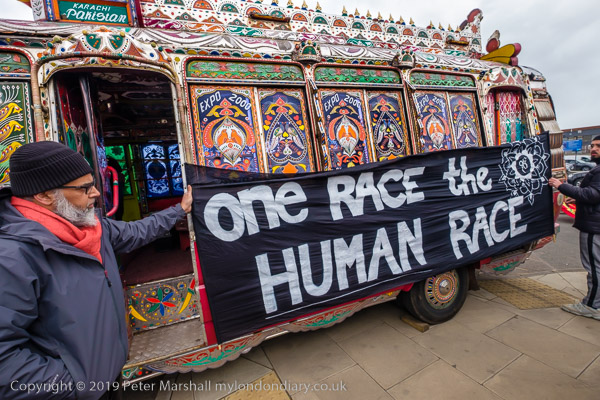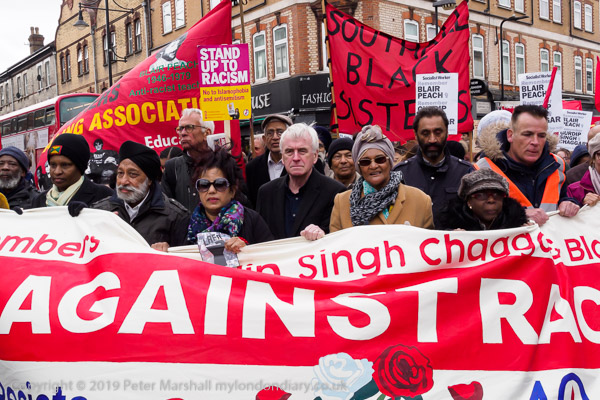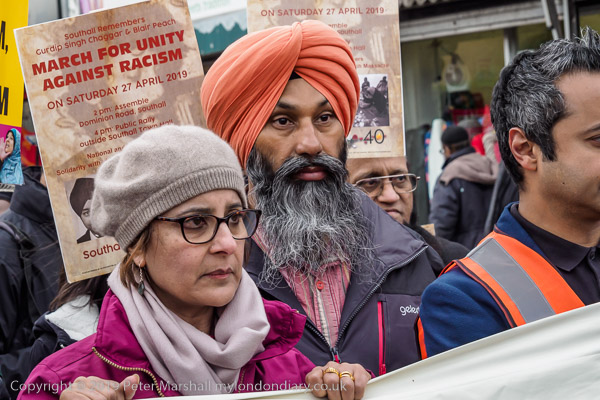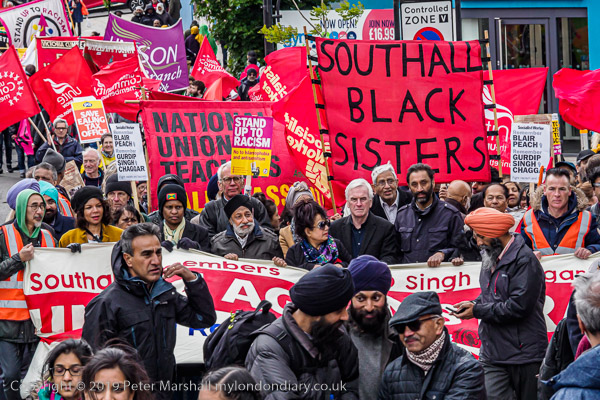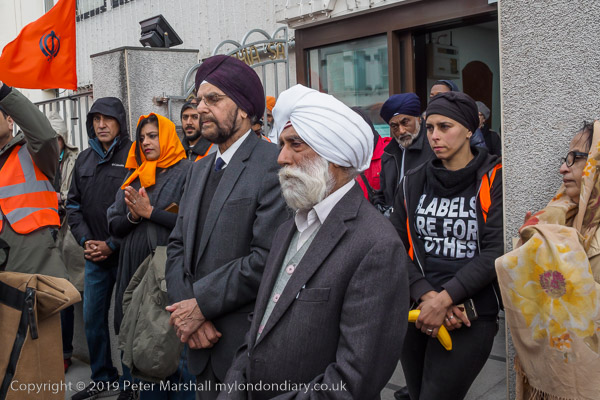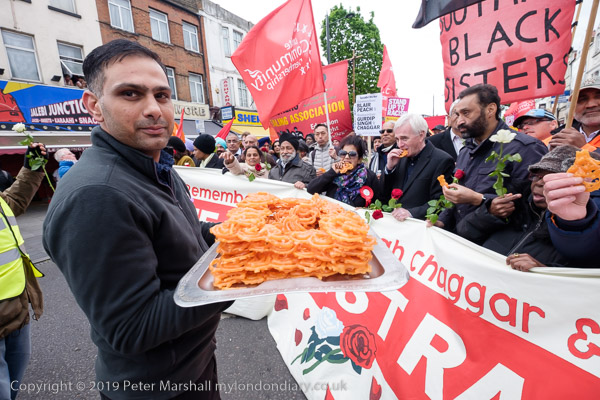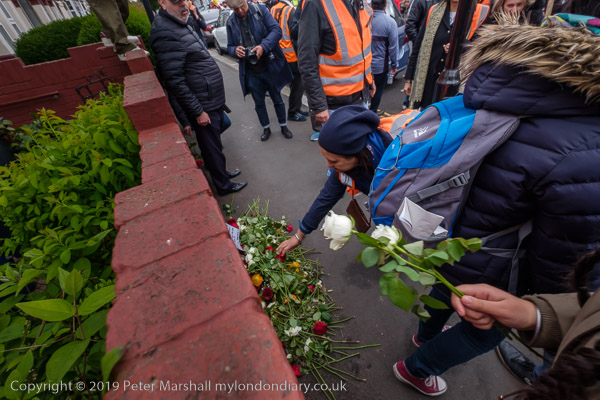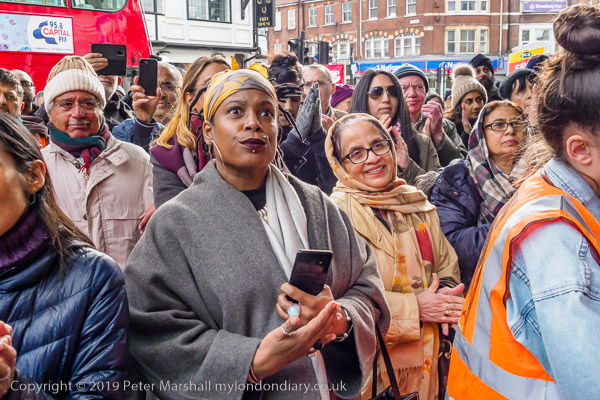Inequality, Democracy Camp & the Blessed Sacrament – On Saturday 18th October 2014 over 80,000 people marched in London to call for workers to share in the economic recovery which has seen a great increase in wages of chief executives while workers have lost out. Later I went to Parliament Square where the Democracy Camp finally took over the area. When police left, I left to photograph a Catholic religious procession.
Britain Needs A Pay Rise – Embankment
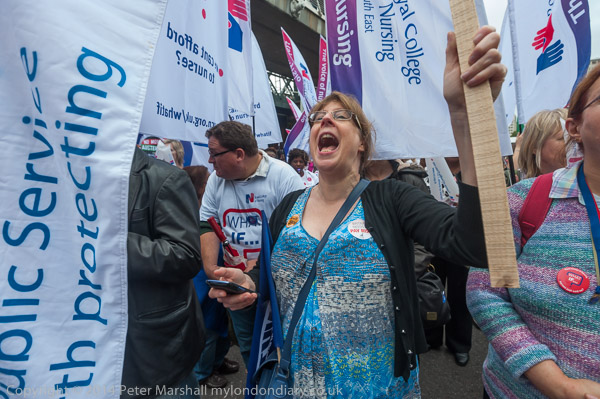
I walked along the Embankment a couple of hours before the march was due to start and already it was beginning to fill up with marchers, and I returned later from photographing Democracy Camp protesters in Parliament Square just in time to catch the end of a photocall with TUC General Secretary Frances O’Grady in front of a bus covered with a green banner with the message ‘Britain Needs a Pay Rise’ and people holding large white numbers 1,7 and 5.
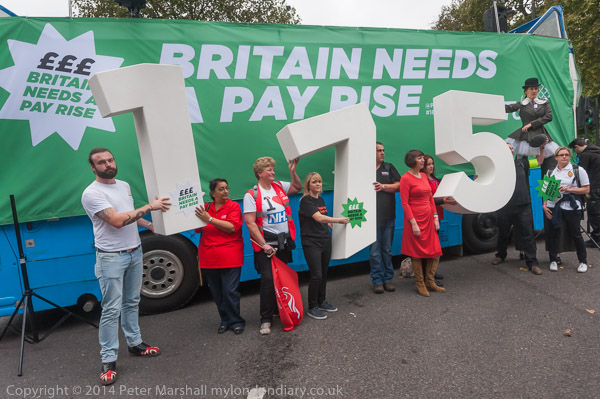
The gap between rich and poor is widening in the UK, with company chief executives in 2014 getting 175 times the pay of the average worker. Wealth is also hugely unequally divided, with the “the richest 50 families in the UK held more wealth than half of the UK population” by 2023. Only 8 of the 37 Organization for Economic Co-operation and Development countries are now less equal than the UK.

Eventually the march set off, and after photographing the start of the march I stayed in place to photograph the rest of the march as it came past me.

“At the front were the major unions, the health workers and the teachers, the firefighters and more, a reminder of how much we still depend on unionised workers despite the largely successful attacks by Thatcher and later governments which have almost eliminated the unions in many areas.”

“Further back the marchers were more varied, and I met rather more people I knew, including those with CND, Focus E15, Occupy London and other radical movements.”

I kept taking pictures as people came past me for around an hour and a quarter, when people were still coming past but it was close to the end. Rather than continue with them to Hyde Park where the final rally would be starting I considered taking the Underground – it would probably be over before those marchers arrived. But I decided I had enough pictures of the event and went instead to Parliament Square to see what was happening at the Democracy Camp.
Many more pictures at Britain Needs A Pay Rise.
Democracy Camp Takes the Square – Parliament Square
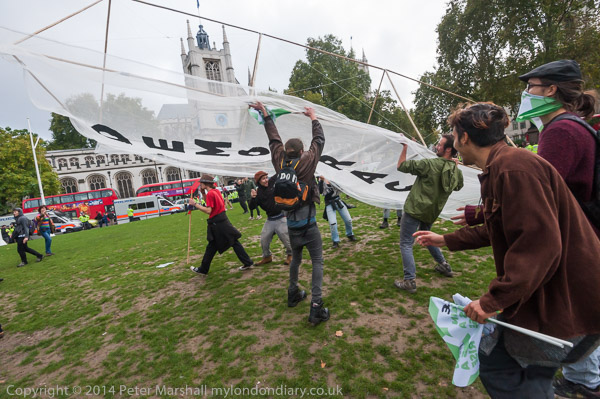
When I arrived the tense standoff between police and protesters around the edges of the grassed area was continuing. Many of the protesters had temporarily left the square to join in with the TUC march but were beginning to arrive back.
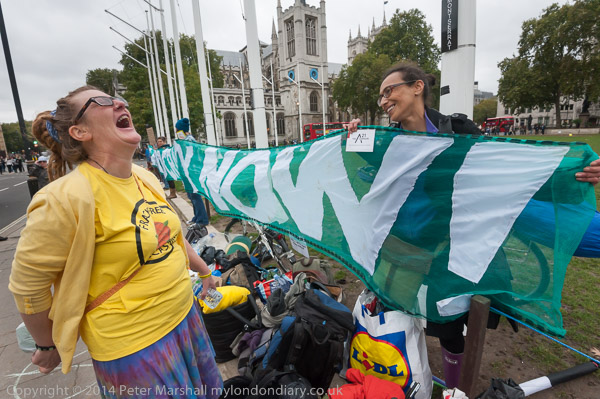
One group “from UK Uncut came into the square dancing to the sound of a music centre on a shopping trolley. As they danced on the pavement in front of the statue of Churchill, Westminster Council officials prompted police into action and together with one of the Heritage Wardens the police moved to attempt to seize the sound system.”
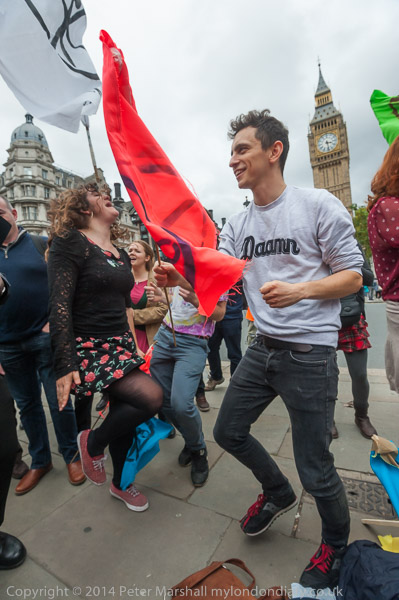
“Democracy campers linked arms to make it difficult for the warden and police to reach the system” but eventually the group were surrounded and “Martin Tuohy showed his ID as Senior Westminster Warden at Westminster City Council and together with another employee grabbed the system with police looking on.”
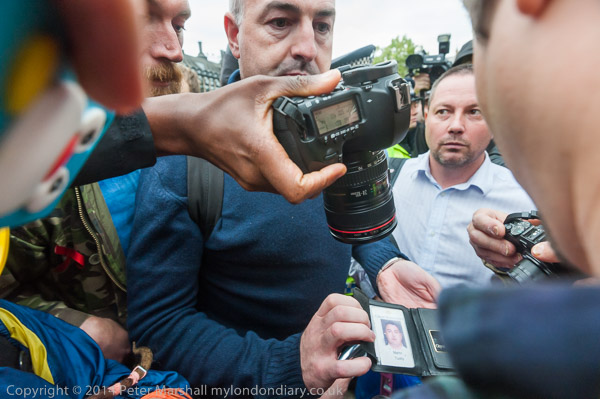
After some tense argument the UK Uncut group were allowed to leave the square along with their sound equipment with the warning that unless they took it away from Parliament Square it would be taken from them.

More people arrived from the TUC march, where some had carried “two large wood and fabric towers, one with the words POWER and OCCUPY and the other the word DEMOCRACY. Together with other protesters they ran onto the grass square and raised the towers“

Others joined them including some carrying a long ‘Real Democracy Now!’ banner and the rally began.
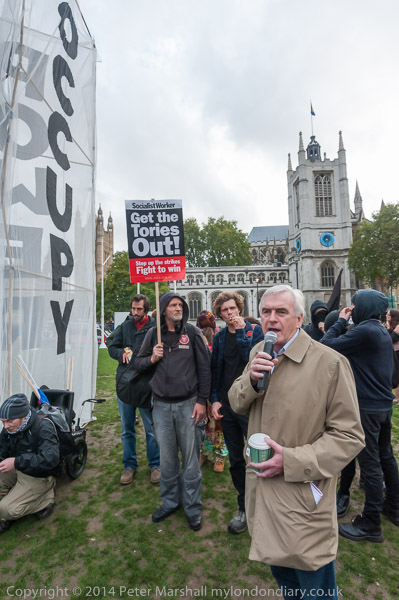
The first speaker was “Labour MP John McDonnell. Among the other speakers were Occupy’s George Barda, environmentalist Donnachadh McCarthy and Russell Brand, who after speaking posed for photographs together with many of those present. “

The sudden invasion of the grass had taken the police and Heritage Wardens by surprise, and they had been unable to do anything to prevent it. But during the rally police began “massing around the square in blocks of around 20, obviously posed in a military looking formations ready to run onto the square.” As well as perhaps 200 ordinary police, reinforcements arrived “arrived with two larger groups of blue-capped TSGs obviously spoiling for a fight.”
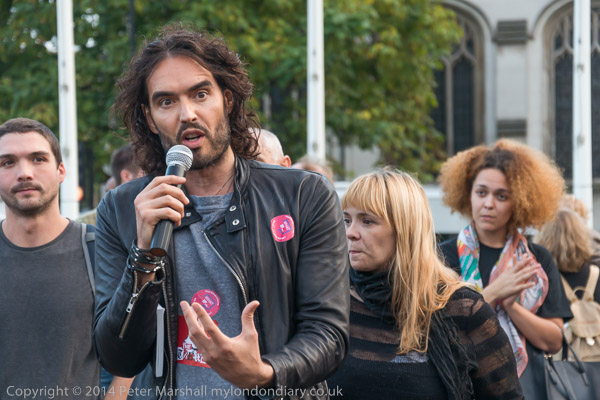
“Then the police suddenly started to disappear while Brand was speaking. Perhaps someone had realised that with Russell Brand talking, any attack on the protesters would have generated massive and largely negative media coverage. Much better to come back late at night and do it after the mass media had left (which they did.)”
Nothing seemed likely to happen until much later, so I left for another event.
More at Democracy Camp takes the Square.
Procession of the Blessed Sacrament – Westminster Cathedral to Southwark Cathedral

I arrived just in time to see the procession emerge from Westminster Cathedral – no photography was allowed inside.
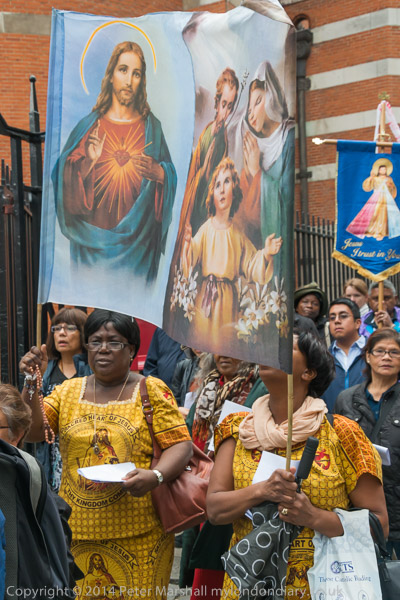
I followed it down the road to Lambeth Bridge where they stopped for a change of dress as Auxiliary Bishop Paul Hendricks put on his robe to carry the sacrament in Southwark diocese.

I left the procession at the south end of the bridge to catch a bus back to Waterloo and make my way home.

Procession of the Blessed Sacrament.
Flickr – Facebook – My London Diary – Hull Photos – Lea Valley – Paris
London’s Industrial Heritage – London Photos
All photographs on this page are copyright © Peter Marshall.
Contact me to buy prints or licence to reproduce.
